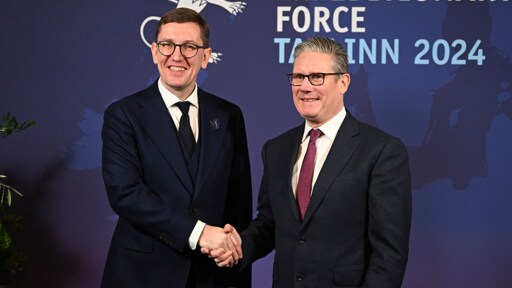[…]
Estonia PM Kristen Michal, who is hosting Sir Keir Starmer and eight other European leaders at a security summit in Tallinn, said that if the allies wanted to have peace, they needed to prepare for a defensive war against Russia that could begin in the next five or ten years.
“Russia has a mentality that war is something sacred, that this is a sacred war, and they are against everybody,” he said.
“They are against Europe, they are against Nato, they are against the United States. And the only way they would diverge from this path is if they were to meet something bigger or stronger on this path.”
Since the full-scale Russian invasion of Ukraine in 2022, defence spending across Nato as a whole has crept over 2 per cent of GDP for the first time in three decades. Twenty-three of the 32 allies have now crossed the threshold, compared with only seven before the onslaught. Poland’s budget is climbing towards 5 per cent and Estonia’s is projected to reach 3.7 per cent next year.
[…]
Last week Mark Rutte, Nato’s secretary-general, said the Europeans needed to get back to Cold War-era levels of military spending, when budgets were routinely well over 3 per cent, because the threat to their security was even greater today.
[…]
Estonian officials now say they are confident that Nato will raise the bar to 2.5 or 3 per cent in the near future, not least because the alliance’s new lists of specific requirements from each national military will force the issue.
“I believe that we’ll reach the momentum and more and more countries are understanding that they need to do more,” Hanno Pevkur, Estonia’s defence minister, told The Times. “It’s not only about the words that Trump is saying. It’s about the real needs.”
[…]
Estonian officials argue that if Ukraine can cling on until the spring then Putin will face mounting discontent within his own regime and find it harder to persuade other power brokers that Russia can outlast its opponents.
In the long run, Michal said, Russia was “absolutely” destroying its economic future. “If one were to look at Russia’s economy like we look at other economies … Russia’s economy would be like a train wreck in slow motion,” he said. “But because the [Russian] narrative is different, the Putin regime’s only way of staying in power is to continue this kind of war because during the war [its critics] cannot ask any questions”.
[…]
I’m not sure that all of that is true. Specifically, I don’t think they’ll stop when confronted with a massively superior force.
Once the logistics train runs dry, everyone stops.
Russia wouldn’t stand a chance against NATO. They would have a much easier time, but still get whooped if NATO didn’t have the US onboard.
But they’d still do a hell of a lot of damage and likely China would take the chance to go at Taiwan. The risk of nuclear exchange would be enormous.
It will be much cheaper to be strong enough that Russia daren’t.
They won’t stop, but they can be slowed down until they implode. Whether turning Russia into another North Korea is part of the long term plan, is a separate question.
Radio Free Europe and such, worked. We’re at the manufacturing consent stage now.
No, Chomsky and Herman don’t apply here, It was Russia that started the war. The aggressor is Putin’s Russia. The “manufactured consent” -if at all- works here only with the tankies and other derailed communities.
[Edit typo.]



